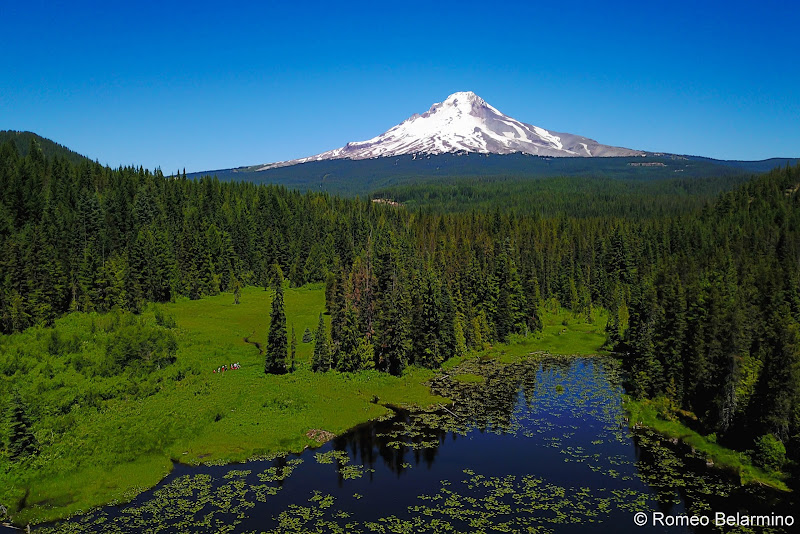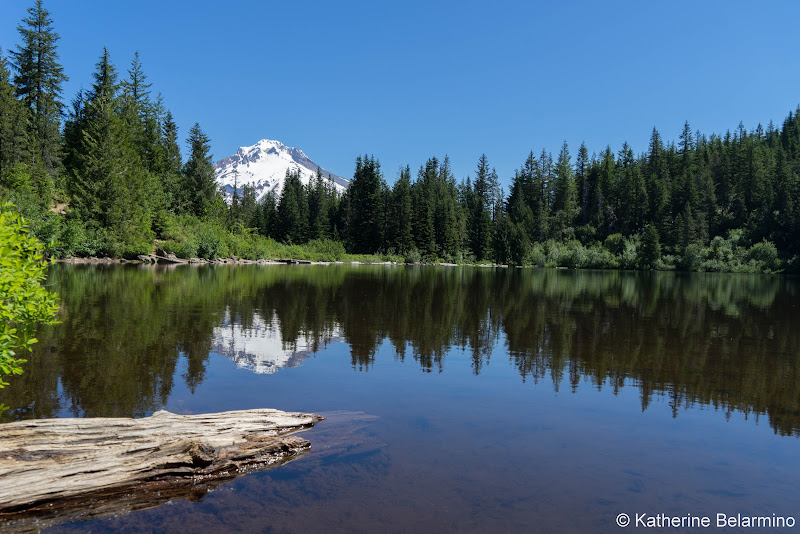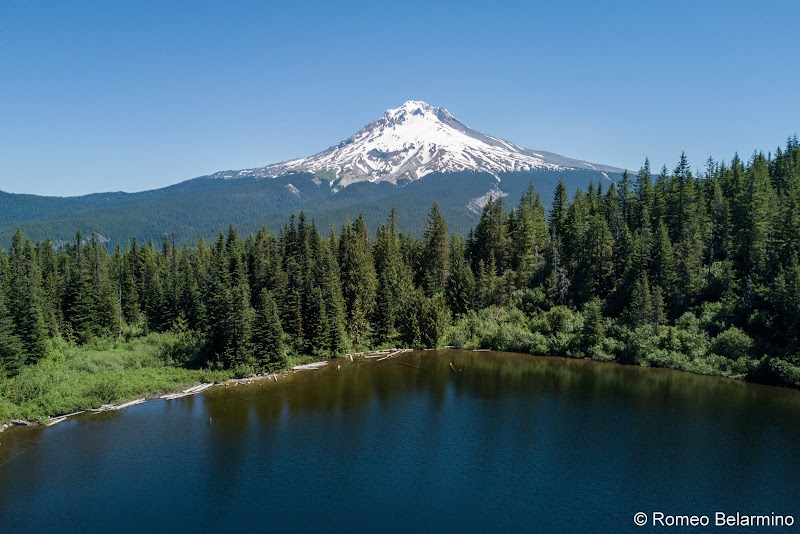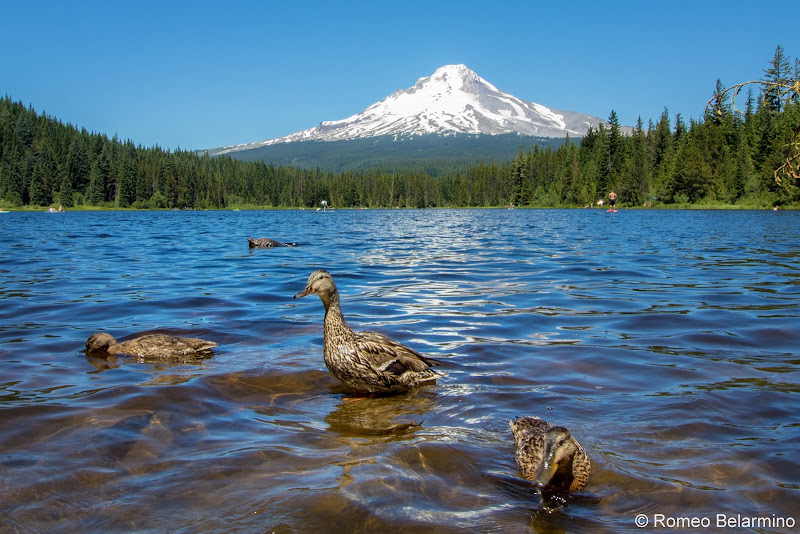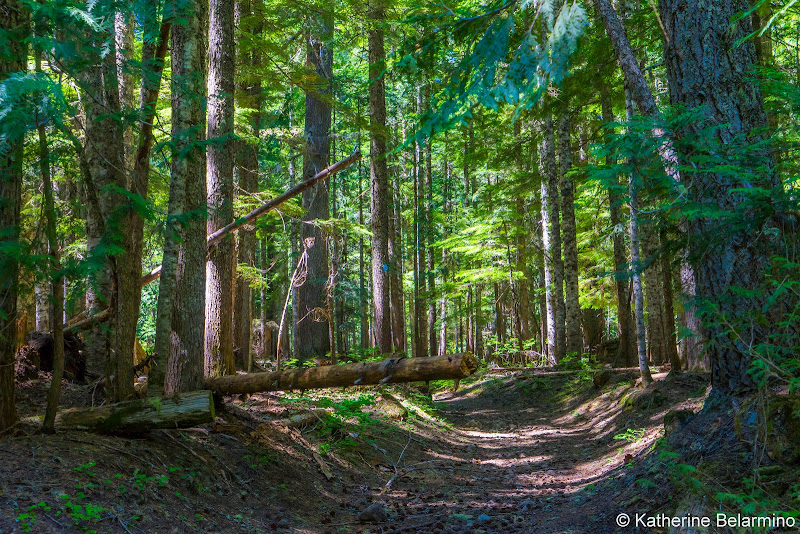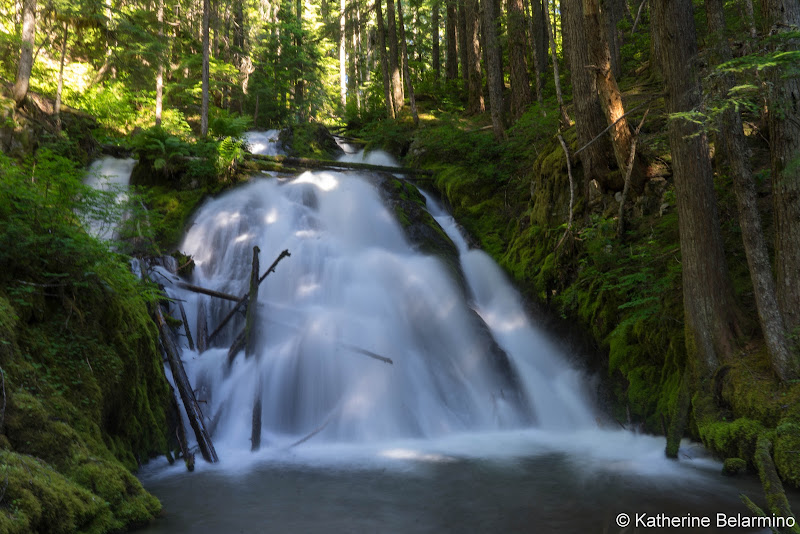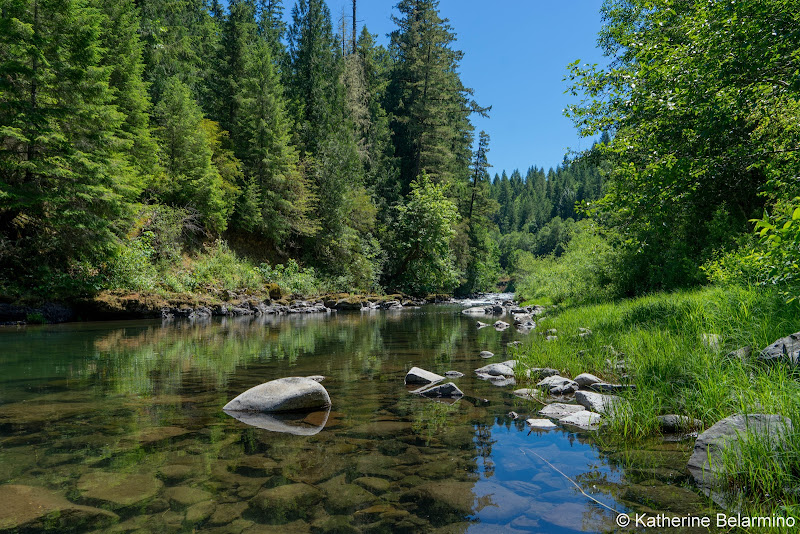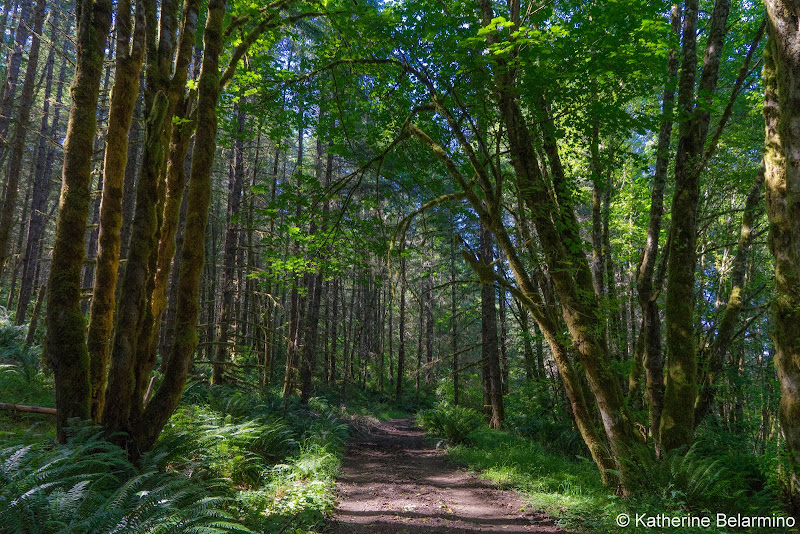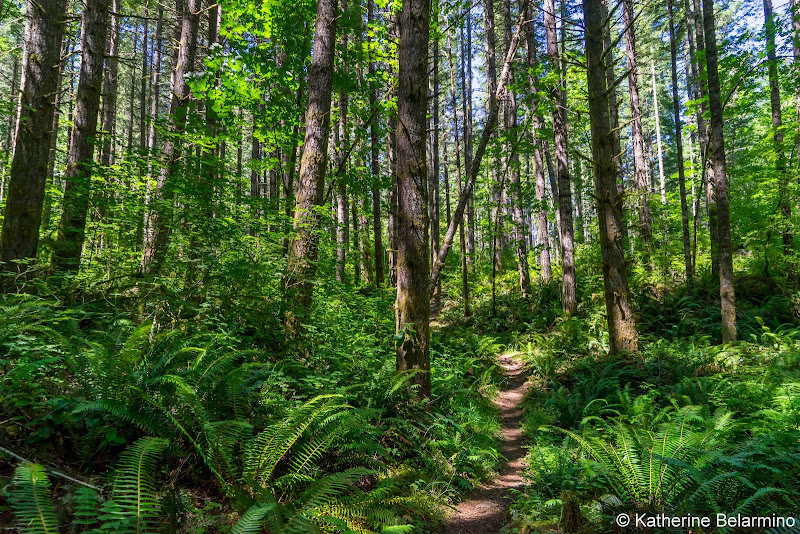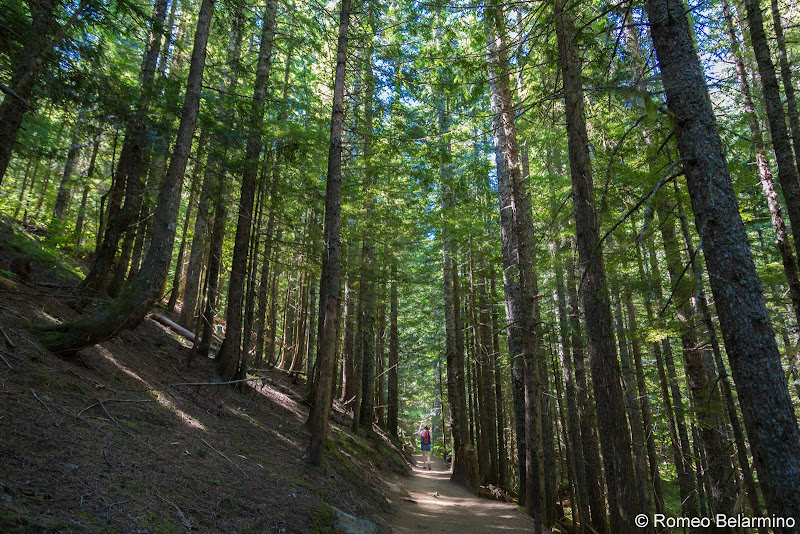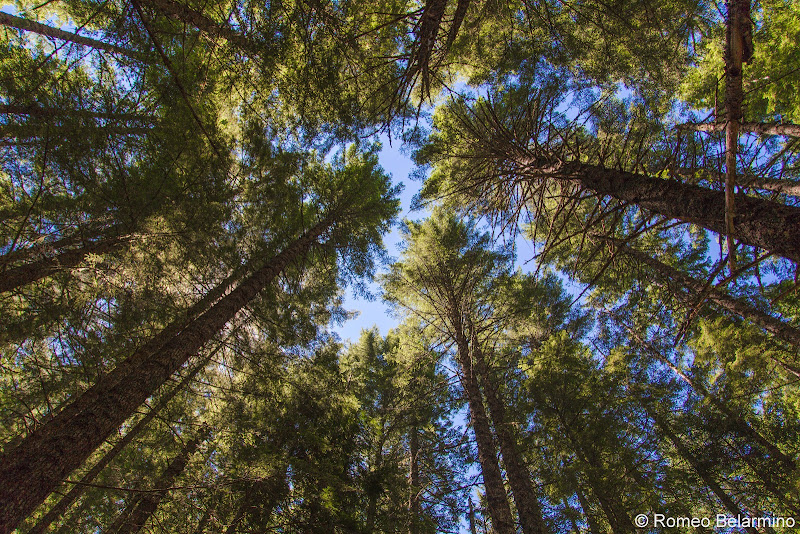Oregon is one of America’s most beautiful states when it comes to nature. When we spent a long weekend in Oregon City, our main goal was to spend as much time outdoors as possible. There is a multitude of hiking trails of varying difficulty available to visitors to Oregon’s Mt. Hood Territory. The five Oregon hikes that we chose provided a nice sampling of what Oregon has to offer hikers.
Mt. Hood National Forest Mirror Lake Trail
The Mirror Lake Trail within Mt. Hood National Forest is a 2.1-mile roundtrip hike with an elevation gain of 1,400 feet. 2.1 miles doesn’t sound very long, but it felt longer because there is quite a bit of uphill, especially when approaching the lake. The trail is shaded by a forest of tall trees so you can stay cool even in the middle of summer.
The views of the lake are worth the climb. Be sure to walk around the entire lake. We found the best views to be at the halfway point around the lake. Walking around the lake adds another half-mile. Part of the trail around the lake is a wooden plank walkway crossing the wilderness terrain. As the name implies, the mirror surface of the lake creates a picturesque reflection of Mt. Hood.
Mt. Hood National Forest Trillium Lake Trail
The Trillium Lake Trail is a much easier lake trail at 1.9 miles around the lake with no elevation gain. The trail is a mix of flat compacted earth and wooden boardwalks. This trail also provides views of Mt. Hood. As the trail crosses through wetlands, there are also bird watching opportunities.
Trillium Lake is a popular place for people to enjoy the shore and water sports like kayaking and paddle boarding. There is a campground along part of the lake. When we hiked the trail the beach on the dam was completely filled because it was a holiday weekend.
Mt. Hood National Forest Barlow Trail
The Barlow Trail was the least picturesque of the hikes we took, but what makes it interesting is that it was once part of the Historic Barlow Road, one of the final legs of the Historic Oregon Trail. The trail is .6 miles one-way with a 100-foot elevation gain. The trail is rustic and rocky in places because its historic characteristics are being preserved.
Mt. Hood National Forest Little Zigzag Falls Trail
The Little Zigzag Falls Trail is a short half-mile one-way hike that leads hikers 100 feet uphill along a stream with a destination of a very pretty waterfall. Because the trail is shaded and follows along running water, the temperature stays very cool. The hike is easy and short and the return is far greater than the effort required.
Molalla River Trails System
The Molalla River Recreation Corridor has 20 miles of trails. However, unlike the Mt. Hood National Forest which has in-depth descriptions of each hike on their website, the online documentation of the Molalla River Trails System is a bit lacking, which made it hard for us to choose our trails of choice. However, as we started hiking the trails system, we ran into two ladies on horseback who were kind enough to provide us with suggestions that turned out to create a beautiful hike.
The most popular trailhead is the Hardy Creek Trailhead, but after our conversation, we left that trailhead and chose to start our hike at the Annie’s Cabin Trailhead, which can be easy to miss as it consists of a yellow gate part way up a hill and an unmarked dirt parking area across the street. The good news is that the trails themselves are well-marked, so we were easily able to create a hike made with a combination of trails using a picture of the South Trails map that was at the trailhead.
We started with the Yellow Gate Trail, took a right on Huckleberry Trail and passed Annie’s Cabin. We left the main trail and followed the much narrower Fern Creek Trail, which passes through a fern forest. We eventually met up with the Loop Trail, which we followed until it met back up with the Huckleberry Trail, which we followed, under the shade of towering trees, back to our starting trailhead. As was true with the other trails we hiked, the Molalla River Trails System is almost completely shaded.
A recreation pass is required for hiking trails within Mt. Hood National Forest. It is possible to buy a day pass or an annual pass, depending on how many days you will be hiking. A parking fee may be required by the Bureau of Land Management when hiking in the Olalla River Recreation Corridor, though during our visit all we saw was a voluntary donation box partway into the hike. Most of these hikes in Mt. Hood National Forest are snow-free in the summer and fall months. Visit the closest U.S. Forest Ranger Station before setting out to see if any trails have unexpected conditions.
Thank you to Oregon’s Mt. Hood Territory for hosting our long weekend in Oregon City and The Territory and making this post possible. As always, all opinions are our own.
